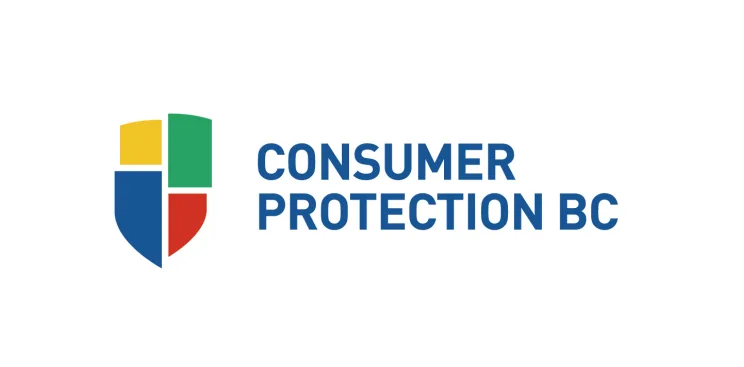
Can a credit card issuer raise my credit limit without my permission?
We use them all the time — to make purchases, shop online and collect points. They’re practical and convenient. But before you get a credit card, learn about your rights and how to protect your information.
What you should know
“For my daughter’s 19th birthday, I offered to co-sign for her first credit card. It’s important to get an early start in building up a good credit history. And having a credit card will help her become more financially responsible and independent.”
– Brenda, Port Coquitlam, BC

The deal with a credit card is this: you get what you want now, and promise to pay later. If you haven’t paid within a certain period of time, the folks at Visa or Mastercard — or whatever card you’re using — will charge you interest. The time before interest charges kick in is called the grace period.
Under the law in BC, credit cards are a form of “open credit.” This means the cardholder isn’t borrowing a fixed or agreed-upon amount of money. Credit is available as needed, up to a certain limit. This is called your “credit limit.”
The card issuer sets the terms of the credit card (including the interest rate and credit limit) in a contract, called the cardholder agreement. You must accept the terms of the cardholder agreement before using the card.
There are two types of agreement:
between merchants and consumers
between financial institutions and consumers
In merchant agreements, a store issues its own card directly to the consumer. The card usually only works at that store (or chain of stores).
In financial institution agreements, the card can be used at any business that accepts the card.
Read the cardholder agreement
Make sure you’re comfortable with the terms of the cardholder agreement before using a credit card. Remember, the moment you buy something on the card you accept all the terms of the agreement, including the interest rate and any non-interest charges. It’s no excuse to say you didn’t read or understand the agreement.
Under the law in BC, a credit card issuer must tell you certain things in the credit card application form. The form must include:
the interest rate
the grace period
any non-interest charges
This information usually appears in a box near the top of the application form. Or it may be in a separate document that’s attached to the form. The information box should look something like this.
When you receive your card, you also get a copy of the cardholder agreement. (The issuer is bound by law to include it.) The agreement must set out all the terms and conditions of the credit card, including:
the minimum periodic payment
the credit limit
how interest is calculated
the cardholder’s maximum liability if the card is lost or stolen
Usually, this information is also set out in a box at the beginning of the agreement.
If you get a credit card you didn't ask for
Credit card issuers aren’t allowed to send you a credit card you didn’t ask for. See our page on getting a credit card you never asked for.
Under the law in BC, a credit card issuer must send a cardholder a monthly statement of account. You can choose to receive the statement electronically or by mail.
The monthly statement must contain certain information, including:
the period covered by the statement
the outstanding balance at the beginning of the period
a description of each charge and transaction during the period
the outstanding balance at the end of the period
the due date for payment
the amount that must be paid within the grace period to avoid interest
Check your receipts
If you don’t recognize a merchant’s name on your statement, check the amount against your recent receipts. (Save your receipts! Or take a picture of them with your phone.) Sometimes the name of a business shows up differently on credit card statements.
An increase in your credit limit
Under Canadian law, the card issuer can’t raise the credit limit on your credit card without your permission — you have to authorize the increase. And it’s not enough that you tell a representative you want a higher credit limit. They need to confirm your consent in writing. If you consent orally, the issuer must send you written confirmation no later than with your next monthly statement.
Other changes to your agreement
For other changes to your cardholder agreement, the card issuer must inform you of the changes.
For the following changes, they can inform you in your next monthly statement:
a decrease in the credit limit
a decrease in the interest rate or any other charge
an increase in the length of the grace period
a change in a floating interest rate
For all other changes to your cardholder agreement, the card issuer must tell you about the change at least 30 days before the change takes effect.
Most credit card issuers offer joint credit card accounts. These accounts involve two or more parties to the agreement. The multiple cardholders share the liability. The terms of liability are spelled out in the cardholder agreement. There are three main ways to create a joint credit card account:
as authorized users
as co-applicants
as co-signer or guarantor
As an authorized user
An authorized user is allowed to use another person’s credit card account but isn’t (usually) liable for the bills. The person who applies for the credit card, and whose name is on the agreement, is called the “primary cardholder.” In BC, the primary cardholder must be 19 or older.
As a primary cardholder, you:
can add and remove authorized users to your credit card at any time
are responsible for paying the money owed on the credit card
Any purchases made by an authorized user on the account will show up in the primary cardholder’s monthly statement. Authorized users get a separate card with their name on it. The card is linked to the primary cardholder’s account.
As co-applicants
Some credit card issuers allow you and another person to apply for a credit card together. Each co-applicant has the same access to the account and is equally responsible for any money owing.
The card issuer must disclose information about the account to each of the co-applicants. (See above.) Each co-applicant is also entitled to receive a monthly statement.
As a co-signer or guarantor
Someone who would not normally qualify for a credit card may be able to get one with a co-signer or guarantor. A co-signer or guarantor doesn’t usually have access to the account, but may end up being responsible for paying the debt. See our guidance on co-signing or guaranteeing a loan.
Consider the impact on your credit score
Usually, activity on a joint account won’t affect an authorized user’s credit score. This is because the primary cardholder is ultimately liable for the debt. This is not the case for co-applicants, co-signers and guarantors. See our guidance on credit scores.
Take action to protect yourself
Find a secure place for your credit card account numbers. Note the expiration dates on the cards. Write down the toll-free customer service number in case you lose your cards. (It’s on the back of the card in tiny print.)
Don’t let anyone — including your spouse or children — use your credit card. Under the law in BC, you’re protected from full liability if your card is lost or stolen. (See our guidance on if your credit card is lost or stolen.) But if you voluntarily give up your card and PIN number to someone, you lose this protection.
Before you throw away an expired or unwanted credit card, cut it up or shred it. This disables the magnetic stripe on the card. Dispose of the bits separately so no one can piece together the card number.
If your card has a chip, make sure you destroy it before throwing the card away. If your card is made of metal, contact the issuer and ask how to properly dispose of it. They may ask that you return it to them by mail.
Shredding your bank statements and receipts when you’re done with them is also a good idea.
Never give your card number over the phone or online unless you’re positive the representative is actually the employee of a reputable company. If you haven’t purchased anything from the company before, search online for reviews or complaints against it.
Review your credit card bills as soon as they come in. If you use online banking, make it a habit to check your account frequently. That way you’ll catch any fraudulent activity on your account as soon as possible.
If there are any charges on your statement you suspect are fraudulent, contact your card issuer right away. They can put a fraud alert on your card, preventing any additional charges.
See our guidance on scams and identity theft .
Common questions
Usually with your first purchase. However, you may have to activate your card over the phone or online. Ask your card issuer about their activation procedure.
As a co-signer on a credit card account, you and the primary cardholder will typically share “joint and several liability” for any debt, including interest and applicable charges. This means you both become immediately responsible for the full amount owing on the card. The card issuer can demand the full balance on the account from either of you, regardless of who actually made the purchase and incurred the debt.
For more information, see our page on co-signing or guaranteeing a loan.
Who can help

Financial Consumer Agency of Canada
Deals with complaints against federally-regulated banks and trust companies.

Consumer Protection BC
If you don’t think a credit card issuer disclosed the required information.

